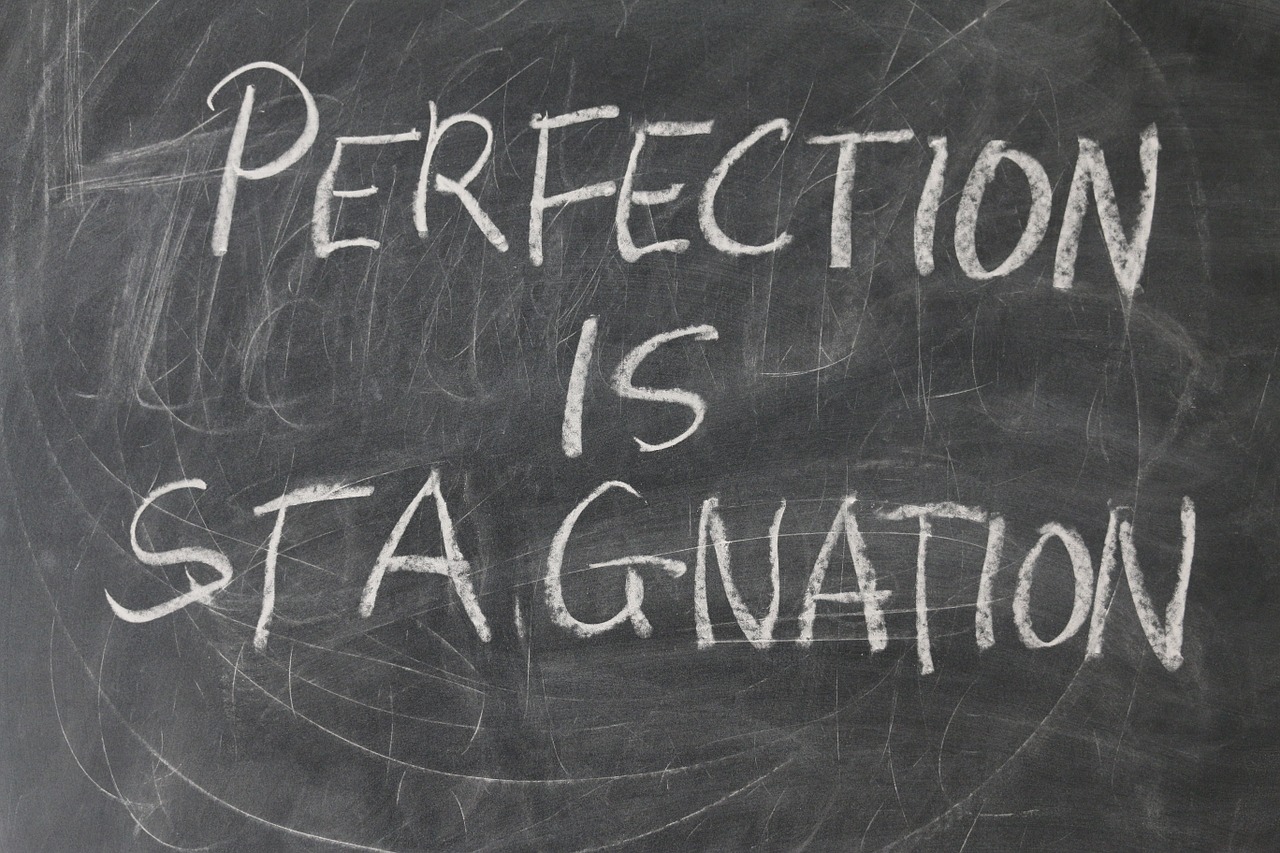How To Defeat Your Inner Perfectionist and Start Releasing More Music
Many people truly love writing, recording, mixing and performing, and would also love to do it for a living. However, so many of them are held back by their own fear. One of the most subtle but powerful forms of fear comes in the form of “perfectionism”.
The perfectionist inside us holds us back so we are never able to finish or release our music, because no creative work can ever be “perfect”.
My goal here today is not to convince you to make average music or mixes, but instead to help you defeat what’s been holding you back and keeps you from progressing and improving. Too high a degree of perfectionism can have significant effects on one’s life both creatively and otherwise. I have heard and read others making statements like these:
“It’s so much pain, it’s unbelievable. All I want to do is express myself and finish more music. But I find myself second guessing, being overly critical, and having massive anxiety with just sitting down to make stuff.”
“I hate the perfectionism issue in me. Art is never perfect… I’m never perfect. It’s my excuse for never finishing…”
“It’s becoming very demoralizing to see just how much effort it takes to make every part and every track absolutely perfect.”
The good thing is that you can overcome the perfectionist in you and finally be able to start releasing your music and stop the endless tweaking of knobs and second-guessing of decisions. There are many techniques you can use to overcome this type of fear. A quick disclaimer first: I’m nowhere near being a psychologist, so if you are feeling overly anxious due to other issues, contact one.
However, I do have a real interest in personal development, and like others, have found some of the following techniques to be very helpful in overcoming perfectionism and releasing more and better music:
Fear Setting (Popularized by Tim Ferris)
This technique will help you define your fears and move forward through them. There are three basic steps here:
1. Define Your Fear.
For example, you may fear that your music has to be “perfect” otherwise you can’t finish your project nor release it. There may be additional fears attached to this—Perhaps others will think you are “not talented”. Write down exactly what comes into your head when you ask yourself why your music has to be “perfect” and what would happen if your music wasn’t perfect before releasing it. No filter, just get it all out onto the page. Define your nightmare.
2. Write down the steps you could take to repair the damage.
If, for example, you did release your music and it wasn’t “perfect”, and some of your fears came true, what could you do next? Chances are that the impact is not as bad as you think it would be. But if some of your fears came true, what could you do next to move forward from there?
3. Be clear about the outcome or benefits of actually releasing what you have been holding back.
What about actually releasing your music would make it worthwhile? Would you have a sense of relief or a sense of pride? Would it give you an excuse to perform more? Is it a first and necessary step in a larger career plan?
For even more detail on the “Fear Setting” technique, try Tim Ferris’ blog post or TED talk on the subject.
This technique is not too far off from what Tony Robbins teaches in his book, Awaken The Giant Within, in which he explains that all of our decisions, at their root level, are based on avoiding pain and gaining in pleasure.
One really good exercise in this book that can be used to shift the pain you might be experiencing with your perfectionism is:
1. Write down 4 specific actions that you need to take that you have been putting off.
Perhaps you need to write your final notes for mix revisions, schedule a mastering session, create an account with a digital distributor, and sit down to draft a release schedule and strategy.
2. Write down an answer to the question “Why haven’t I taken action?”
In the past, what pain have you linked to taking these actions?
3. Write down all the pleasure you’ve had in the past by indulging in this negative pattern.
4. Write down what it will cost you if you don’t change now.
5. Write down how that cost makes you feel.
6. Finally, write down all the pleasure you’ll receive by taking action to start finishing your next release.
Benefits
I hope these two powerful techniques help you define your fear and take the next steps to finally release your next project.
Aside from the pleasure of knowing you have defeated the perfectionist within you, there are countless other benefits to starting to release more music.
One such benefit is that you are now on your way of developing a real fan base and network of collaborators and allies which would have been impossible before release. You have the possibility of promoting the release by playing live shows, creating music videos, or even taking your new skills to produce, co-write, mix or master for other artists. You are even in a better place to help your friends who may be struggling with the same issues.
As each release comes out, things that never seemed possible before are now at your doorstep, and you’ve ingrained the essential habit of finishing a little more deeply still.
Perhaps most importantly, by releasing your material you will be able to move on to the next project, then the next and so on, which is what will truly allow you to become better at your craft.
By going back and listening to your older finished material you will start to hear things that could have been better and this is exactly how your music and your mixes will get better. This growth would not have been possible if you kept working on perfecting just a few tracks for the rest of your life.
Enjoy a Future of Making More Music
Once you have mastered the skill of finishing, and you start putting your work out there for the public to enjoy and with some fairly simple techniques, you can start producing more music than you’ve ever done in the past.
I’ve found that one of the best ways to achieve this is to become more organized in how you manage your time. When I started adopting this technique of actually organizing my week in advance—as in, setting specific days and times for when I should write new music, when I should record it, mix it etc—I was able to increase my own output tremendously.
Even if you are already working full-time, by organizing your evenings or weekends and dedicating a few hours every day, you will start to see that making 2 or 3 EPs a year is not nearly as daunting as it once seemed.
Of course, sticking to this new schedule takes dedication and patience, and it requires sacrificing some other easy and enjoyable activities that don’t bring you nearly as much joy or fulfillment. There will be evenings where you might not come up with anything good, your initial mixes might sound terrible, but by coming back to it as often as you can, you will see the results.
Increasing your musical output is a lot like going to the gym. You won’t get ripped after the first month. It takes time, effort, dedication but in the end, over the weeks and months and years, you may see incredible results. It’s the same way with music.
Niclas Jeppsson is a freelance sound engineer who lives and works in London. He has worked with Manon Grandjean, Mandy Parnell, Jon Moon, Cameron Craig and writes library music that has been used by the like of Audi and more.
For more from Niclas, including interviews with Andrew Scheps, Vance Powell, Michael Brauer and the free guide, “How To Get Work And Become A Freelance Sound Engineer”, visit him at https://youraudiosolutions.com
Please note: When you buy products through links on this page, we may earn an affiliate commission.









